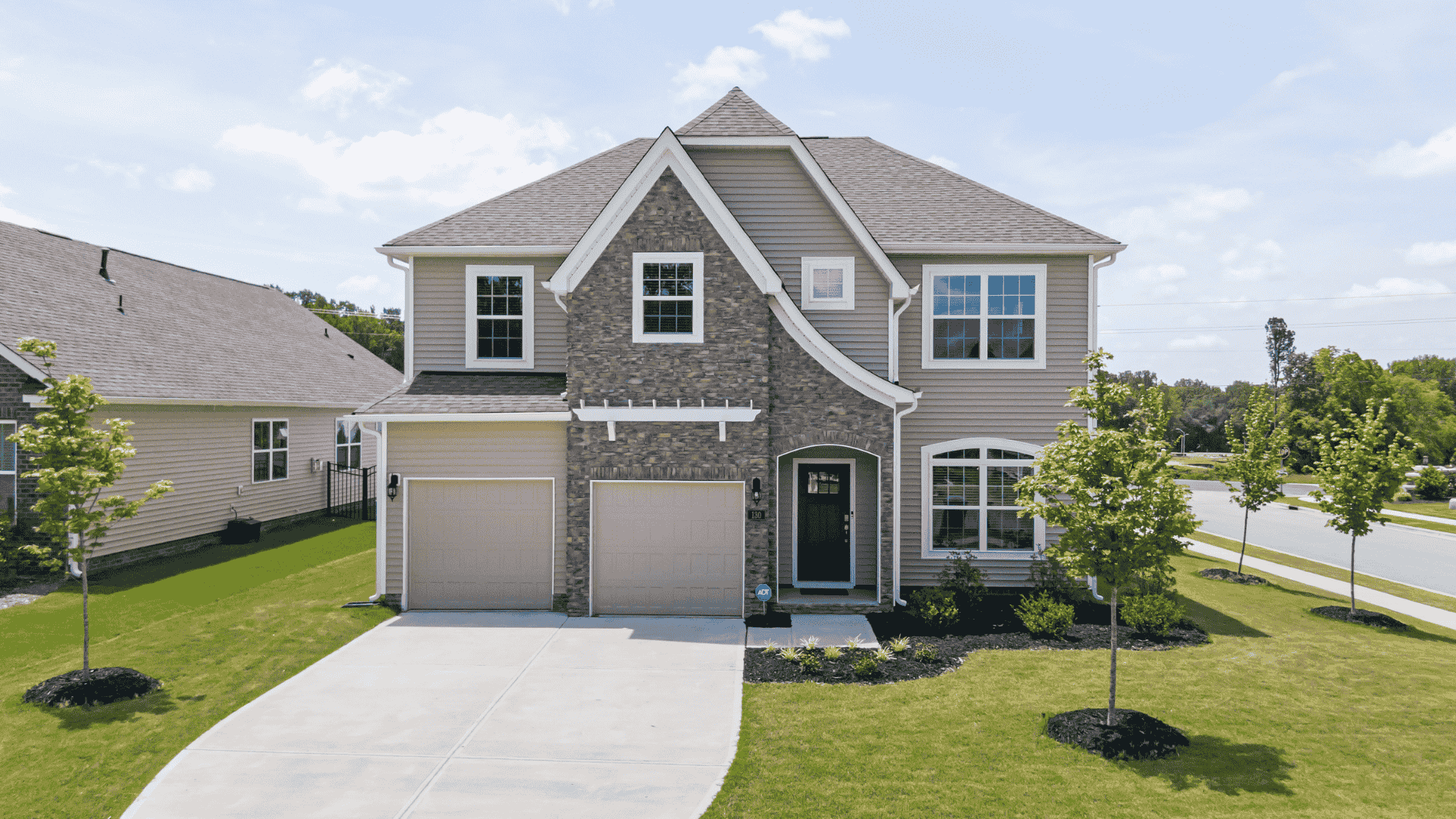U.S. Housing Markets With the Biggest Home Price Declines
Avoiding Pitfalls: U.S. Housing Markets to Approach with Caution for International Property Investors
FREE DOWNLOAD: 10 Costly Mistakes Foreigners Make Buying U.S. Real Estate
For inversores internacionales eager to build strong U.S. property investment portfolios, knowing where not to invest is as important as knowing where to put your money. The goal is always consistent cash flow and long-term growth. To reach this, you must understand markets that carry higher risks or face a tough outlook.
This guide is for global property investors. We will look at U.S. cities where the housing market shows signs of trouble. We’ll explain what makes these markets risky. We’ll also provide smart steps to help you protect your investments. Being careful and informed is key to long-term success.
Investment Properties: Browse U.S. Investment Properties Selected for Non-Resident investors
Key Things to Know: Risky U.S. Housing Markets for International Investors
- Look for Warning Signs: Watch out for markets with too many homes for sale, slowing population growth, or prices that are too high for local incomes.
- Beware of Overheated Markets: Cities that saw very fast price growth recently might be due for a slowdown or even a drop in prices.
- Climate Risks Matter: Some areas face high risks from weather events. This can mean higher insurance costs and lower property values.
- Do Your Homework: Always check local market details very carefully before you buy.
- Focus on Strong Basics: Stick to markets with steady job growth and good rental demand. This helps keep your consistent cash flow.
- Use Local Experts: Work with trusted local real estate agents and property managers. They know the market best.
Related: The Best U.S. Real Estate Markets for International Investors in 2025
What Makes a U.S. Housing Market Risky for Investors?
Not all U.S. housing markets are the same. Some carry more risk for inversores internacionales. Knowing these risks helps you protect your U.S. property investment. Here are some key warning signs:
- Too Many Homes for Sale (High Inventory): When there are too many homes on the market and not enough buyers, prices can fall. This means it might be harder to find renters or sell your property later. Reports show some markets, especially in Texas and Florida, are seeing higher numbers of homes for sale, slowing down buyer interest.
- Homes are Too Expensive (Unaffordability): If home prices grow much faster than local incomes, people can’t afford to buy. This hurts demand for buying homes. It can also make it harder to find tenants who can afford high rents, hitting your consistent cash flow. Boise, Idaho, for example, saw prices rise much faster than incomes.
- Slowing Job and Population Growth: A healthy rental market needs new people moving in and good jobs. If job growth slows or people start leaving, demand for rentals can drop. This affects your property’s value and income.
- Past Fast Price Increases (Overvaluation): Some cities saw huge price jumps during and after the pandemic. These markets might now be cooling down or correcting. This means prices could fall. Cities like Austin and Phoenix are seeing prices adjust after rapid increases.
- High Risk from Climate Events: Areas prone to hurricanes, floods, or wildfires can have very high insurance costs. These costs can eat into your consistent cash flow. They can also make properties harder to sell or lower their value. Parts of Florida and Texas, for instance, are noted for high climate risks.
Related: Best U.S. Real Estate Markets for First Time Investors
U.S. Cities to Approach with Caution (Examples)
Based on recent market analysis, some U.S. cities show signs that inversores internacionales should watch closely or approach with extra care. These are not always “bad” cities, but their housing markets face challenges that could affect your investment.
(Note: Market conditions can change quickly. This list is based on recent trends and expert analysis. Always do your own thorough local research.)
Cities Showing Signs of Overvaluation or Price Correction:
- Austin, Texas: This city saw huge price jumps during the pandemic. Now, costs are very high, and prices are starting to fall. Fewer remote workers are moving there, and more homes are for sale.
- Boise, Idaho: Boise saw home prices go up much faster than local incomes. This makes it very hard for local people to afford homes. This rapid rise could mean a slowdown.
- Phoenix, Arizona: Once a hot spot for out-of-state buyers, Phoenix is also seeing prices adjust. More new homes are being built, and fewer buyers are coming from other states.
- Las Vegas, Nevada: This market has been very up and down. It has a high chance of prices dropping by 5% or more. This makes it one of the less stable big cities.
- Sacramento, California: Similar to other California markets, Sacramento has experienced significant volatility in home prices, influenced by broader state trends and affordability challenges.
Related: U.S. Real Estate Market Forecast and Outlook to 2030
Cities with High Inventory & Weakening Demand:
- Tampa, Florida: Tampa saw a lot of growth, but now remote worker movement has slowed. There are more homes for sale, giving buyers more power. Prices are now falling.
- Jacksonville, Florida: With fewer people moving in and more homes available, Jacksonville is facing a slowdown in its housing market.
- Orlando, Florida: This market is seeing weaker interest from investors and fewer tourists. This is slowing down the demand for homes.
- San Antonio, Texas: While cheaper than some other Texas cities, San Antonio’s price increases outpaced income growth. Now, more homes are available, leading to price corrections.
- Dallas, Texas: Even though Dallas is still strong economically, its housing market has too many homes for sale. This is making prices adjust.
Related: Top US Housing Markets With Rising House Prices (2025)
Cities with Affordability, Supply, or Local Market Challenges:
- Portland, Oregon: This city faces tough housing challenges. It has a very low number of empty apartments or houses. This makes it hard to find a place.
- Bridgeport, Connecticut: This older city in the Northeast struggles to add new housing. Not enough new homes are built, which creates housing stress.
- New Orleans, Louisiana: This historic city has problems with affordability and slow job growth. These factors are causing prices to move down.
- Albuquerque, New Mexico: This market has seen a recent dip in prices. This puts it on shaky ground for the start of 2025.
Related: National Association of Realtors Predictions for U.S. House Prices in 2025
Protecting Your Investment: Smart Moves for International Investors
Being careful with your U.S. property investment is crucial. Here are smart steps for inversores internacionales:
- Avoid High-Risk Markets: The simplest way to protect your money is to avoid investing in markets that show strong signs of risk. Focus your search on stable, growing areas.
- Stick to Strong Basics: Look for cities with:
- Steady Job Growth: This brings new people and strong tenant demand.
- Consistent Population Growth: More people means more demand for homes.
- Good Affordability: Prices should be fair compared to local incomes. This means stable rental rates and happy tenants.
- Do Your Homework (Due Diligence): Even in good markets, check every property carefully. Look at its condition, expected rent, and costs. Understand the local neighborhood.
- Work with Local Experts: A good local real estate agent knows the best areas. A strong property manager will help you keep your property rented and running well. This is vital for consistent cash flow.
- Think Long-Term: Real estate is a long-term game. Look past small ups and downs. Focus on markets that can grow over many years.
- Use Smart Financing (Like DSCR Loans): DSCR loans can help inversores internacionales buy properties more easily. They focus on the property’s income potential, not your personal U.S. credit. This lets you act fast when good deals appear in safer markets.
Related: DSCR Loans for Foreign Nationals and Non-Residents: Your Essential Guide
Conclusion: Informed Choices for Lasting Success
For inversores internacionales, being smart about U.S. housing market trends is key. By knowing the warning signs and which markets to watch out for, you can make better choices. This helps protect your U.S. property investment and ensures consistent cash flow.
Always rely on good data, expert advice, and a clear strategy. This will help you build a strong and profitable real estate portfolio for the long run.
Previous Article: Top U.S. Mortgage Lenders for Foreign Nationals and Non-Residents
GROW YOUR WEALTH WITH U.S. REAL ESTATE
Start your U.S. real estate investment journey today with high-quality cashflow real estate. Book a llamada estratégica gratuita 1:1 con un miembro de nuestro equipo directivo para discutir su estrategia personalizada.
“Having personally invested in over 120 US rental properties from overseas, I know the true value of getting the right advice and support.
David Garner - Cashflow Rentals
GROW YOUR WEALTH WITH U.S. REAL ESTATE
Start your US real estate investment journey today, and book a llamada estratégica gratuita 1:1 with a member of our senior management team.
“Having personally invested in over 120 US rental properties from overseas, I know the true value of getting the right advice and support.
David Garner - Cashflow Rentals

Frequently Asked Questions (FAQs) on Risky U.S. Housing Markets for International Investors
Here are common questions inversores internacionales ask about avoiding risky U.S. housing markets.
Q: What are the biggest warning signs of a risky U.S. housing market for investors?
A: Big warning signs include too many homes for sale (high inventory), home prices that are too high for local incomes, slowing job or population growth, past very fast price increases that could lead to corrections, and high risks from climate events (like hurricanes, floods).
Q: Why should international investors pay attention to these risky markets?
A: Paying attention helps inversores internacionales avoid pitfalls. Investing in risky markets can mean lower rental income, slower property value growth, or even price drops. This can hurt your consistent cash flow and overall investment.
Q: Do all cities that saw fast price growth carry high risk now?
A: Not all, but many do. Cities that had very rapid price increases in recent years might be “overheated.” This means their prices are higher than what local economies can support. Such markets are more likely to see prices slow down or even fall.
Q: How can climate risks affect my property investment?
A: High climate risks (like from hurricanes or wildfires) can lead to much higher insurance costs. These costs can reduce your consistent cash flow. They can also make your property harder to sell or lower its value over time.
Q: What should international investors do if they are considering a market on this “caution” list?
A: If a market you like is on a caution list, do extra homework. Work very closely with local real estate experts who know the exact neighborhoods. Understand the specific risks and if they can be managed for your investment goals.
Q: Should international investors only focus on markets with very low risk?
A: While focusing on low-risk markets is smart for consistent cash flow, all investments carry some risk. The key is to understand the risks. Then, choose markets where you are comfortable with the balance of potential returns versus known challenges.
Q: How can local experts help international investors avoid risky markets?
A: Local real estate agents and property managers have deep knowledge of specific neighborhoods. They can give you up-to-date information on local market trends, rental demand, and hidden risks. This helps you make smarter choices and avoid mistakes.







![USA Property Investment for Foreign Buyers [2025 Guide]](https://cashflowrentals.net/wp-content/uploads/2025/07/USA-Property-Investment-for-Foreigners-Expert-2025-Guide-500x383.png)



